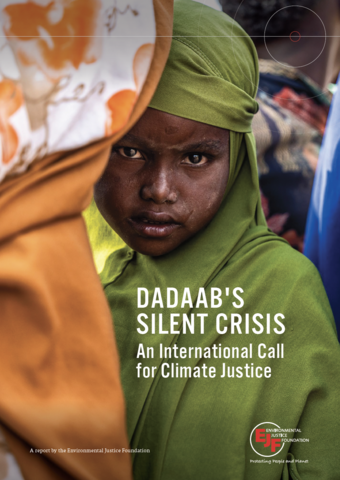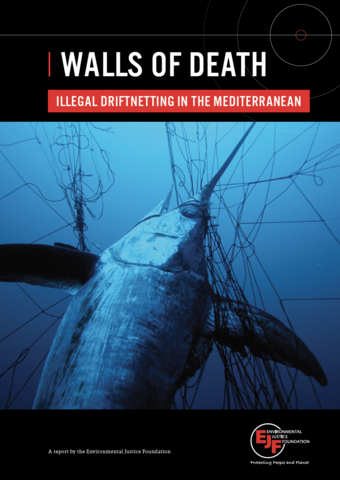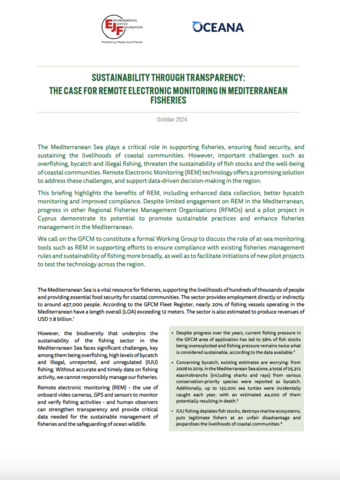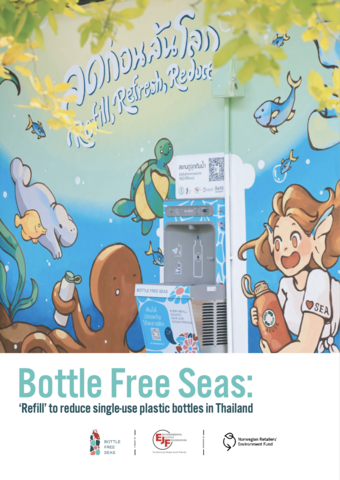Films
Stolen at Sea: The Chinese Trawlers Driving the Collapse of Ghana’s Fisheries
‘Saiko’ is a severely destructive form of illegal fishing. Foreign trawlers target the staple catch of Ghanaian canoe fishers and sell this stolen fish back to local communities. Our new report has estimated the true cost of saiko.
Shining a Light: EJF's Investigation into the Devastating Impacts of Illegal Saiko Fishing in Ghana
An ecological disaster is unfolding off the coast of Ghana. ‘Shining a Light’ documents the Environmental Justice Foundation’s investigation into illegal ‘saiko’ fishing.
Thailand's Seafood Slaves: Human Trafficking, Slavery and Murder in Kantang's Seafood Industry
Beyond Borders - the threat of climate change
The climate crisis represents the greatest threat to global peace and security, development and the preservation of human rights in the 21st century.
Illegal fishing and human trafficking in Taiwan's fishing industry
Fish in Disguise: Seafood Fraud in South Korea
Sharks and Rays in Liberia: the need for a National Plan of Action
Slaughter at Sea
EJF has uncovered a number of cruel and illegal practices on board fishing vessels associated with Taiwan.
Reports
Dadaab's silent crisis: an international call for climate justice: This report tells the stories of those on the frontlines of the climate crisis in Dadaab refugee camp, Kenya. These stories highlight the devastating impacts of the drought in the Horn of Africa and the link between global heating and forced displacement.
« Les murs de la mort » : La pêche illicite au filet dérivant en Méditerranée: Les filets dérivants sont une méthode de pêche indiscriminée consistant en des filets pouvant mesurer des dizaines de kilomètres, suspendus verticalement dans la colonne d'eau. Cette enquête a porté sur l'utilisation illégale et généralisée de filets dérivants par des navires marocains dans la mer d'Alboran, un point chaud de la biodiversité méditerranéenne.
«Cortinas de la muerte» : Pesca ilegal con redes de deriva en el Mediterráneo: Las redes de deriva son un método de pesca indiscriminado que consiste en redes que pueden medir decenas de kilómetros, suspendidas verticalmente en la columna de agua. Esta investigación examinó el extendido uso ilegal de redes de deriva por parte de buques marroquíes en el mar de Alborán, un punto caliente de la biodiversidad mediterránea.
‘Walls of death’: illegal driftnetting in the Mediterranean: Driftnets are an indiscriminate fishing method consisting of nets which can measure tens of kilometres, suspended vertically in the water column. This investigation examined the widespread illegal use of driftnets by Moroccan vessels in the Alboran Sea, a Mediterranean biodiversity hotspot.
Sustainability through transparency: the case for remote electronic monitoring in Mediterranean fisheries: Remote electronic monitoring (REM) and human observers can strengthen transparency and provide critical data needed for the sustainable management of fisheries and the safeguarding of ocean wildlife in the Mediterranean.
Bottle Free Seas: ‘Refill’ to reduce single-use plastic bottles in Thailand: The Bottle Free Seas project, initiated by EJF and funded by the Norwegian Retailers’ Environment Fund, is dedicated to reducing the use of single-use water bottles. We have achieved this through the installation and promotion of water refill infrastructure in Bangkok. This report outlines lessons learned and how the initiative can be replicated.






